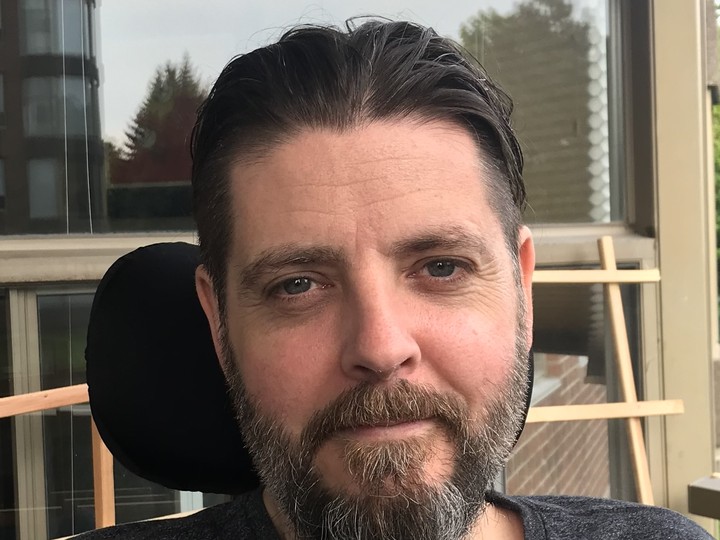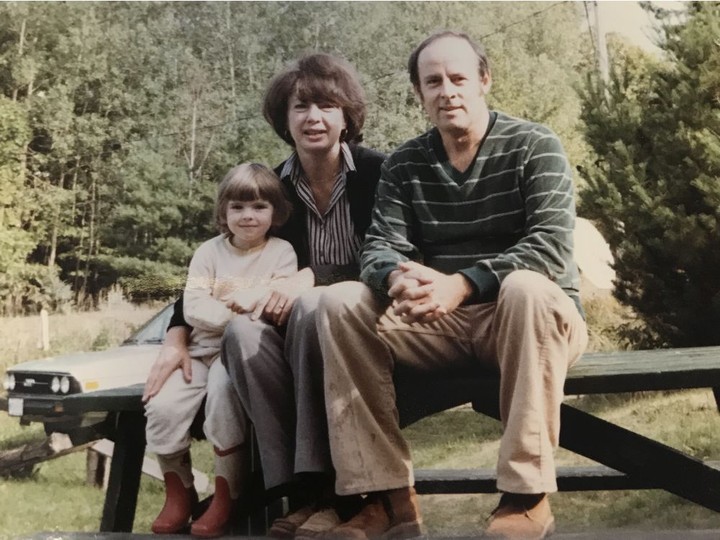everything you need to know about als
healthing's guide to als has all the information you need to make educated health decisions in one place exploring everything from symptoms and treatments to resources and stories of hope.

an estimated 3,000 canadians currently live with als, and those diagnosed face respiratory issues and challenges with movement, mobility, and speech. getty
looking for information on (als) but don’t know where to start? we have created a one-stop hub for everything you need to know about amyotrophic lateral sclerosis (lou gehrig’s disease) — from signs and symptoms and treatments to prevalence, where to find support and connection to stories of hope and resilience from people whose lives have been changed by als.
amyotrophic lateral sclerosis, or lou gehrig’s disease, is terrifying, but an early diagnosis can improve quality of life.

current therapies for als are unable to undo the damage already done by the disease but they can help manage symptoms and slow its progression. getty
als, or amyotrophic lateral sclerosis, is a progressive disease of the nervous system that slowly robs the brain of its ability to communicate and control the voluntary muscles of the body. over time, the motor neurons that enable communication and movement break down and die, causing muscles to weaken and waste away. this gradually deprives patients of the ability to walk, talk, swallow and, eventually, breathe.
als is commonly referred to as lou gehrig’s disease after the new york yankees first baseman who was forced to retire after developing the disease in 1939. he died a few years after being diagnosed. read more
amyotrophic lateral sclerosis, or als, is a disease of the nerve cells in the brain, brain stem and spinal cord that control voluntary muscle movement.
advertisement
in als, motor nerve cells (neurons) waste away or die, and can no longer send messages to muscles. this eventually leads to muscle weakening, twitching, and an inability to move the arms, legs, and body. the condition slowly gets worse. when the muscles in the chest area stop working, it becomes hard or impossible to breathe.
als affects approximately 5 out of every 100,000 people worldwide. read more
life with als: real-life stories
adam welburn-ross was just 43 when he found out that he had als.

“the problem with that is that when you’re classified as a rare disease you don’t get the funding that cancer gets, you don’t get funding that a lot of other neurological diseases get,” says adam welburn-ross. supplied
adam welburn-ross was 43 when he finally had a diagnosis. a scary fall brought him to the emergency room, and neurologists noticed his brain wasn’t communicating effectively with his muscles. doctors told the father of two, and hockey and music lover that he had als.
amyotrophic lateral sclerosis (als) — better known as lou gehrig’s disease –— causes the body’s motor neurons to deteriorate, leading to muscle weakness. eventually, the neurons stop functioning, according to the mayo clinic . patients lose the ability to walk, talk, eat, and even breathe. read more
sara mcdonald shares her thoughts on magic mushrooms as a potential end-of-life therapy.

it is a struggle to stay upbeat when my body is incrementally losing function in a way that greatly impacts quality of life, writes sara mcdonald, who was diagnosed with als 18 months ago and hopes psilocybin will improve her emotional sense of well-being for her remaining time. supplied
courtesy, sara mcdonald)
advertisement
i’m planning a trip — not to paris or rome — not that kind of trip. this will be a journey to explore my inner world with the help of psilocybin (magic mushrooms).
i was diagnosed with als over 18 months ago and, since then, the disease has relentlessly progressed. a friend told me about psilocybin as a potential end-of-life therapy. i knew nothing at all about it; although i came of age in the 1970s, i never dabbled in hallucinogens.
psilocybin works by activating serotonin receptors, most often in the prefrontal cortex. this part of the brain affects mood, cognition, and perception.
this will be a therapeutic journey for me, not recreational. the treatment involves pre-session therapy, therapy during the psilocybin experience and an integration process afterward. i am working with an experienced psychiatrist. read more
“i assumed he would get some medication for his understandable depression and anxiety. but that kind of care wasn’t on the roster — not for the patient, and not for my mom, the caregiver,” writes jim’s daughter, suzanne.

jim westover, at right, with his wife joanne and daughter suzanne. suzanne was a late ‘surprise.’ supplied
jpg
there are few acronyms in the english language more loaded and paralyzing than als. my father was given this diagnosis, like a punch to the gut, in his 83rd year.
advertisement
until then, he was living a dream retirement. his sunset years had been spent on the golf green, or watching the waves from the crow’s nest of the holland america line cruises he loved. he and my mother were vital, vivacious. my friends gasped at the revelation of their chronological ages.
i was my parents’ late-in-life surprise – an unexpected biological child after years of infertility and two adopted sons. my father, i think, never quite got over the miracle. at first a reticent third-time parent, he soon concluded that having a daughter was the icing on life’s cake. he lit up when i walked in the room. proud didn’t begin to cover it. i took it for granted that i would always have this special, almost super-human ability. my very existence was enough to make him happy. read more
 4 minute read
4 minute read





